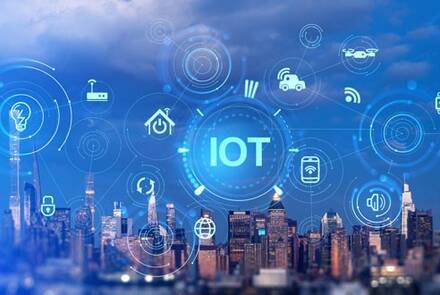Smart City Surveillance Technologies for Urban Safety
The concept of smart cities has heralded a new era of urban development, where technology intertwines with urban life to enhance efficiency, sustainability, and safety. At the core of this transformation lies the integration of surveillance technologies, reshaping urban landscapes and redefining the notion of safety and security.
The Evolution of Smart Cities
Smart cities epitomize the synergy between technology and urban living, encompassing various facets of city life, from transportation and energy management to public services and safety. At the heart of this evolution are surveillance technologies, employed to monitor, analyze, and optimize various urban functions.
The Role of Surveillance Technologies
Surveillance technologies in smart cities extend far beyond traditional CCTV cameras. Advanced sensors, IoT devices, facial recognition systems, and AI-powered analytics form an intricate web of surveillance, enabling cities to gather real-time data on traffic flow, environmental conditions, public spaces, and more. This data becomes the foundation for informed decision-making, resource optimization, and the enhancement of public safety.
Enhancing Urban Safety and Security
Integrated surveillance systems in smart cities offer unparalleled capabilities in ensuring the safety and security of residents. Real-time monitoring allows for swift response to emergencies, early detection of anomalies, and effective crowd management during events or crises. Moreover, predictive analytics employed in these systems can forecast potential security threats, enabling proactive measures to prevent them.
Balancing Privacy and Efficacy
The integration of surveillance technologies in smart cities inevitably raises concerns about privacy and data protection. Striking a balance between leveraging these technologies for public safety and respecting individual privacy rights is a critical challenge. Regulatory frameworks and transparent policies governing data collection, storage, and usage are imperative to ensure ethical and responsible deployment of surveillance systems.
Efficiency and Urban Planning
Surveillance technologies play a pivotal role in optimizing urban infrastructure and services. Data collected from sensors and cameras aid in traffic management, waste management, energy consumption optimization, and the development of more efficient transportation systems. These insights facilitate informed urban planning, leading to resource-efficient and sustainable cities.
Future Horizons: The Evolution of Surveillance Technologies in Smart Cities
The trajectory of surveillance technologies in smart cities is poised for a significant evolution, driven by ongoing advancements in technology and the evolving needs of urban environments.
Enhanced AI Capabilities
Artificial intelligence (AI) is set to play a pivotal role in the future of surveillance in smart cities. AI-driven systems will become more adept at processing and analyzing vast amounts of data in real-time. These systems will not only detect anomalies but also learn from patterns, continuously improving their ability to differentiate between normal activities and potential threats. Enhanced AI capabilities will enable more accurate and efficient predictive analytics, allowing cities to anticipate and prevent security risks with greater precision.
Decentralized Systems and Edge Computing
The shift toward decentralized surveillance systems and edge computing will mark a significant advancement. Edge computing involves processing data closer to its source, reducing latency and improving response times. Decentralized systems distribute computing tasks across multiple nodes, enhancing scalability and resilience. This evolution will enable faster data processing, enabling real-time insights and actions at the edge of the network, enhancing the agility and effectiveness of surveillance systems in responding to dynamic urban environments.
Integration of Diverse Data Sources
The future of surveillance in smart cities lies in the convergence of data from various sources. Beyond traditional surveillance cameras and sensors, data from social media, mobile devices, and other unconventional sources will be integrated. This amalgamation of diverse data streams will provide a more holistic view of urban life, enabling authorities to gain deeper insights into patterns, behaviors, and potential threats. By harnessing this comprehensive data landscape, cities will bolster their predictive capabilities and enhance their ability to preempt security risks.
Ethical AI and Privacy Safeguards
Ethical considerations regarding AI and privacy safeguards will be at the forefront of future developments. As surveillance technologies become more sophisticated, ensuring the ethical use of data and respecting individual privacy rights will be imperative. Striking the right balance between leveraging surveillance for public safety while safeguarding citizen privacy will drive the evolution of robust regulatory frameworks and responsible practices. Transparency, accountability, and citizen engagement will be central to the ethical deployment of surveillance technologies in smart cities.
Adaptive and Resilient Infrastructure
The future of surveillance in smart cities will witness the integration of adaptive and resilient infrastructure. Surveillance systems will be designed to adapt to changing conditions, unforeseen events, and evolving threats. Flexible architectures and robust data analytics will empower cities to respond dynamically to emerging challenges, ensuring the continuity of safety and security measures even in the face of disruptions or adversities.
Conclusion
Surveillance technologies are the linchpin in the transformation of urban landscapes into smart, connected, and safer environments. As cities embrace innovation, the responsible integration of surveillance systems becomes pivotal, ensuring a delicate balance between safety, efficiency, and individual privacy. The journey towards smarter cities is not merely about technological integration but also about fostering inclusive, sustainable, and secure urban spaces for all.
For more information about Trigyn’s Security & Surveillance, Contact Us.






